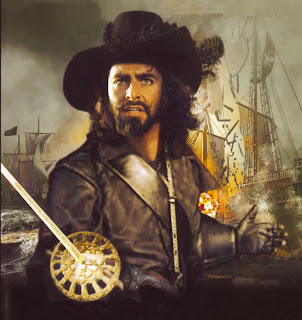They say that the North American natives were taken by surprise, even though the towering masts of the Spaniards were on the horizon for nearly two days before they landed. It is thought they didn’t see the Spanish explorers’ ships because they had no concept of such a thing and that their brains literally did not process the input. This may be completely false: but it is designed to illustrate a cognitive phenomenon referred to as perceptual blindness.
As an instructor and ex-terrible student, I sometimes wonder how other teachers who were perhaps less recalcitrant as developing artists manage to craft approaches for struggling students. Not quite a rhetorical question, but I have noticed among several of my peers a kind of binary classification with their students: there are those who are going to do well, and those who should do something else. Is it like the anecdotal natives? Is it possible they can’t see the talent through the problem because they have no experience with it?
It’s a big question, but I ruminate about it from time to time. I should hope that it continues, though: many of my students are ejected from more prominent studios and come slum with me, only to discover that they are meant to be cellists, after all. I am surely not a finer cello teacher and am definitely a lesser cellist than the previous instructors: but perhaps the anecdotal approach is what sustains these students. If someone as hindered by obduracy, injury, and general jackassery as I am can stagger through the Bach Suites or Popper, there must be a way for them to, too.


3 Responses
Once again, I say: you and I can be friends.
When I taught elementary music to a bunch of poor ethnic minorities (and a handful of poor white kids) who knew little to nothing of "legit" music, hated singing and wanted nothing to do with either, I wasn't a good teacher. And I certainly did not possess the level of musicianship that my professors had/have. But with all due respect to them, they could have never have accomplished what I accomplished at that elementary school in terms of helping those kids to learn to love and enjoy the very things they used to hate.
What helped me was the fact that I had two skills/personality traits/memories (all things that college never taught me, mind you) that almost all of my teachers in college never had:
1. The ability and desire to relate to and connect with all kinds of people (my teachers just wanted to live in their little classical music bubble and couldn't understand why students like me didn't want to join them), and
2. The memory of what it felt like to absolutely deplore and despise opera, symphonic music, and the sound of mature adult "legit" singing. As a kid and even as a young adult, I was no different than the kids I was teaching, so rather than becoming frustrated by their attitudes, I empathized with them. They didn't need a stellar musician for a music teacher; they needed someone who cared about them and saw the world, more often than not, from their side of the musical coin. Fortunately, without realizing it at first, I was just what the doctor ordered.
Anyway, back to you: your skill set that helps you connect to your struggling students and helps them hone their skills is an absolutely vital and indispensable gift to the whole of the musical community. Don't ever forget that. I say let the big shots do what they do well- polish- and let people like you continue to be "lesser" and serve those who are viewed as "less than." After all, there's no higher calling (Matthew 25:40- I'm taking it out of context of course, but it's still a solid Biblical principle)!
Keep up your great teaching and great blogging!
Wow! I couldn't have said it better myself. I *ditto* Travis's comment!
Just a BIG thank you from students like me to teachers like you.